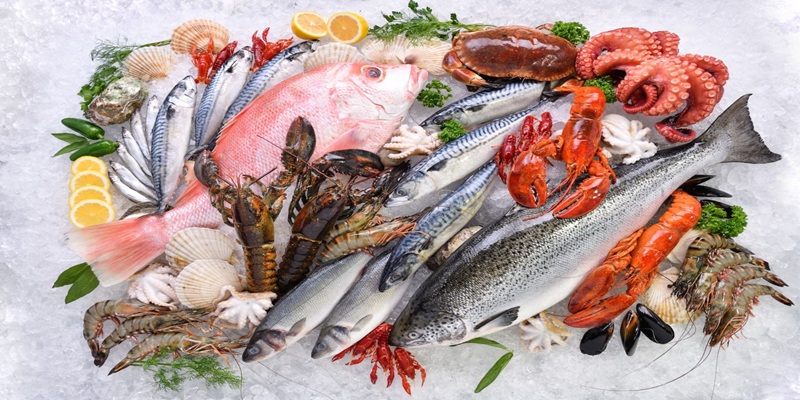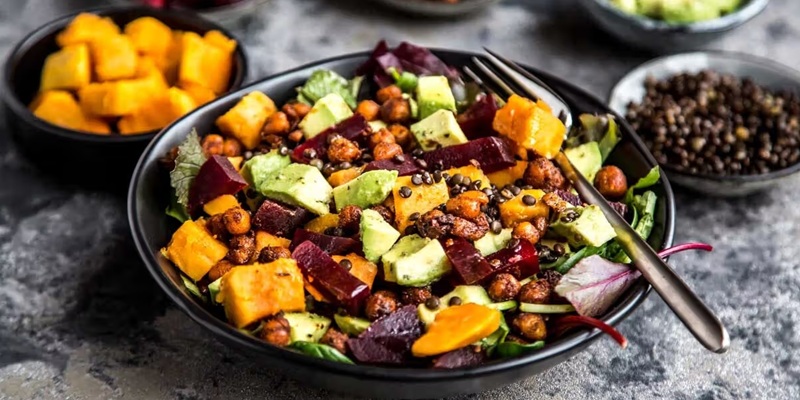What Foods Are High In Cholesterol
Cholesterol is vital for hormone production, vitamin D synthesis, and cell health. While the body produces it, dietary sources impact levels. High LDL can increase heart disease risk, while HDL helps remove excess cholesterol. This article explores what foods are high in cholesterol and how to balance intake for better health.
Cholesterol is vital for hormone production, vitamin D synthesis, and cell health. While the body produces it, dietary sources impact levels. High LDL can increase heart disease risk, while HDL helps remove excess cholesterol. This article explores what foods are high in cholesterol and how to balance intake for better health.
What is Cholesterol?
Cholesterol is essential for hormone production, vitamin D synthesis, and cell membrane integrity. It travels through the bloodstream via LDL ("bad" cholesterol), HDL ("good" cholesterol), and triglycerides. High LDL and triglyceride levels increase heart disease risk, while HDL helps remove LDL. Excess dietary cholesterol can elevate levels, leading to health issues, making it important to understand cholesterol sources and their impact on health.
Sources of Dietary Cholesterol
Cholesterol primarily comes from animal-based foods like meat, poultry, fish, eggs, and full-fat dairy, with organ meats like liver being particularly high. Plant-based foods contain no cholesterol, but some, like coconut oil, can still impact cholesterol levels due to saturated fats. A diet high in animal-based, high-cholesterol foods, like processed meats and cheeses, can negatively affect heart health, while plant-based foods like fruits, vegetables, grains, and nuts are cholesterol-free and beneficial for overall wellness. Understanding these sources helps in making healthier dietary choices.
Foods High in Cholesterol
Dietary cholesterol has drawn considerable medical attention, particularly concerning heart health. Identifying cholesterol-rich food sources can empower individuals to make informed nutritional decisions. Below is a detailed examination of foods high in cholesterol, categorized by type.
1. Meat and Poultry
Certain meats stand out for their elevated cholesterol content. Organ meats, particularly liver, are famously high in cholesterol, with a single serving of beef liver containing over 300mg. Fatty cuts of beef, such as ribeye or T-bone steaks, also pack significant amounts of cholesterol. Often consumed for its rich flavour, chicken skin comes in at around 75mg of cholesterol per 100 grams. Skinless poultry presents a healthier option while still containing some cholesterol. Opting for lean meats and practising moderation with high-cholesterol variants is wise for cardiovascular health.
2. Seafood
Seafood, especially shellfish, contributes notable levels of dietary cholesterol. For instance, shrimp contains approximately 150mg of cholesterol per 100 grams, while crab closely matches similar levels. However, not all seafood is equal; fatty fish like sardines also have cholesterol, but they bring heart-healthy omega-3 fatty acids that can lessen some risks associated with higher cholesterol levels. Including these seafood types as part of a balanced diet emphasizes the importance of overall dietary patterns over isolated food items.

3. Dairy Products
Dairy products portray a broad cholesterol content spectrum influenced by their fat composition. Full-fat milk, cheeses, and butter are notably high in cholesterol; one cup of whole milk delivers roughly 24mg, while typical cheese servings can range from 20mg to over 30mg, based on type. Butter, common in cooking, has about 30mg of cholesterol per tablespoon. Yet low-fat or fat-free dairy options exhibit significantly lower cholesterol counts, with non-fat yoghurt offering negligible levels. For individuals monitoring their cholesterol, choosing low-fat alternatives can dramatically decrease intake without sacrificing nutritional benefits. Such shifts reduce cholesterol consumption and enhance overall health, making them prudent dietary adjustments.
4. Eggs
Eggs have long been viewed cautiously concerning their cholesterol content, which resides chiefly in the yolks. A large egg yolk contains approximately 186mg of cholesterol. Nevertheless, recent studies present a more nuanced view, suggesting that moderate egg consumption may not significantly affect blood cholesterol levels for many. Furthermore, eggs are rich in protein and essential vitamins. Though those with specific health concerns might need to limit yolk intake, many individuals can enjoy eggs within a balanced diet without undue cholesterol anxieties, provided they maintain healthy overall dietary practices.
5. Processed and Fried Foods
Processed and fried foods often harbour increased cholesterol levels due to ingredient choices and cooking methods. Items like commercially prepared snacks and fried delicacies can be laden with trans fats, exacerbating cholesterol issues. For instance, fried chicken and doughnuts typically rank high in cholesterol and unhealthy fats. Additionally, processed meats like sausages and hot dogs are notorious for high cholesterol levels, occasionally exceeding 40mg per serving. Curtailing the intake of fried and processed foods emerges as a vital strategy for maintaining healthy cholesterol levels and overall nourishing dietary habits.
The Impacts of High Cholesterol Foods on Health
Adopting a healthy diet is essential for managing cholesterol intake, as foods rich in cholesterol, like red meat, full-fat dairy, and fried items, can increase the risk of heart disease and stroke. Elevated cholesterol levels can cause plaque buildup in arteries, leading to atherosclerosis, which narrows blood vessels and hinders circulation, raising morbidity and mortality rates.
A balanced diet focused on moderation, including vegetables, whole grains, and lean proteins, helps lower cholesterol levels and promotes heart health. While dietary cholesterol impacts vary based on genetics and lifestyle, making informed choices and enjoying high-cholesterol foods in moderation can significantly reduce the risk of cardiovascular diseases and improve overall health.
Nutritional Recommendations for Healthy Cholesterol Intake
For optimal cholesterol management, dietary guidelines recommend limiting saturated fats to less than 10% of daily calories and minimizing trans fats, which raise "bad" LDL cholesterol. Instead, choose lean proteins like chicken or fish, and incorporate legumes such as lentils, chickpeas, and black beans for cholesterol-free protein and fibre. Opt for low-fat or non-dairy substitutes like almond or oat milk, and include healthy fats from avocados, nuts, seeds, and olive oil to boost "good" HDL cholesterol.
A balanced diet of whole grains, fruits, vegetables, and fibre-rich foods can help improve cholesterol by promoting bile acid excretion. Regular physical activity, aiming for 150 minutes of moderate exercise weekly, is also crucial for maintaining healthy cholesterol levels. By combining these dietary changes with an active lifestyle, individuals can effectively manage cholesterol and improve overall health.

Building a Healthier Future Through Informed Choices
Understanding high-cholesterol foods is paramount for enabling informed dietary choices that nurture overall health. Individuals can proactively manage their intake and choices by recognizing which foods elevate cholesterol levels. Moderation remains crucial; incorporating high-cholesterol foods occasionally and in balanced portions allows for diverse diets while mitigating health risks. By prioritizing awareness and mindful consumption, one can navigate the complexities of cholesterol, ultimately leading to healthier lifestyle decisions and improved wellbeing.